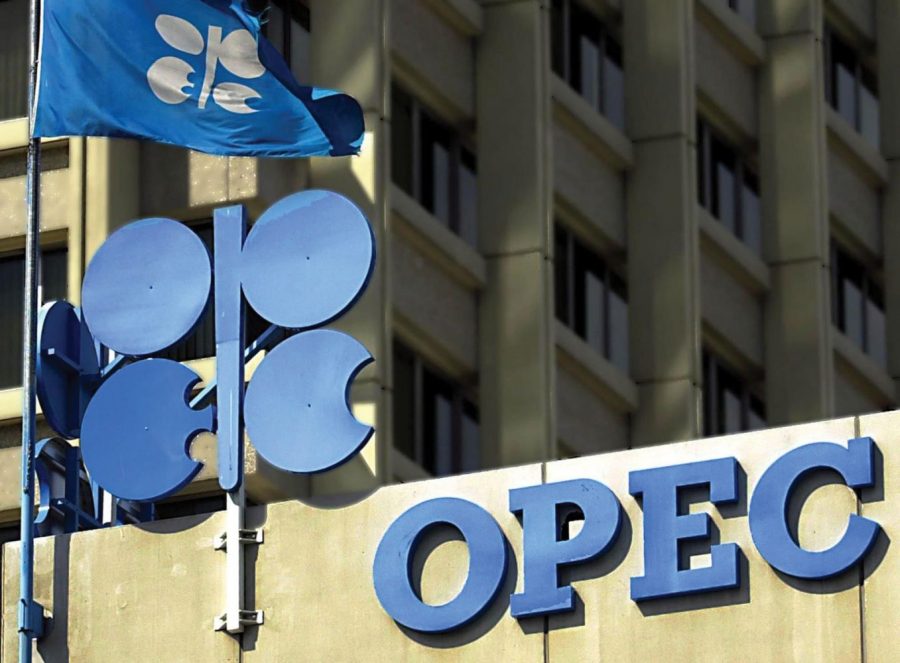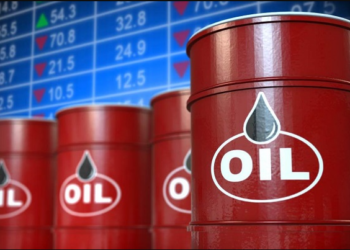The Organisation of Petroleum Exporting Countries (OPEC) has once again shrugged off President Donald Trump’s continued Twitter rants against the organisation’s crude output cuts.
Last Thursday, Trump called out OPEC on Twitter as part of his constant criticisms, demanding that the oil cartel stops driving prices higher.
Very important that OPEC increase the flow of Oil. World Markets are fragile, price of Oil getting too high. Thank you!
— Donald J. Trump (@realDonaldTrump) March 28, 2019
Oil Price fell after Trump’s Twitter tirade
After Trump’s call on OPEC to increase the flow of oil, global prices of the commodity reportedly fell. West Texas Intermediate (WTI) trading down by $0.46 (-0.77%), while Brent dipped by $0.52 (-0.77%).

Recall that Trump has always been critical of OPEC and its non-affiliated allies (OPEC+). He has been demanding that they increase oil production by 1.2 million barrels per day (bpd).
Oil Price rebounds the biggest quarter in 10 years
Earlier, the U.S West Texas Intermediate crude fell to $58.20 per barrel. However, Oil price futures rebounded and settled 11 cents lower at $59.30 a barrel.
Similarly, the International Brent crude oil futures fell 1 cent to $67.82 per barrel on Thursday, after earlier sinking to $66.54 per barrel in the wake of Trump’s tweet.
Away from the rebounding of oil prices after Trump’s tweet, data reportedly shows that U.S. West Texas Intermediate (WTI) futures rose 63 cents to $59.93 a barrel, and were on track for a rise of 32 percent over the January-March period. For the two benchmarks, the first quarter was the best-performing quarter since 2009, when both gained about 40%

Factors to consider
Away from the U.S sanctions, the power blackouts witnessed by Venezuela has crippled its oil industry. According to Industry sources, the country’s main oil export ports required to convert the country’s heavy oil into exportable grades were halted this week.
Forecasts
However, analysts have expressed optimism for oil prices reaching $75 dollars per barrel as inventories fall.
According to Tamas Varg of PVM Oil Associates:
“If the unplanned supply cuts remain in place, oil prices could hit $75 dollars a barrel as inventories fall.”
Similarly, a monthly survey forecast shows Brent would average $67.12 a barrel in 2019, about 1 percent higher than the previous poll’s $66.44.
Meanwhile, the rebound in oil price has been attributed to production cuts in OPEC+ group of producers, and that has been the main reason for the dramatic recovery since the 38% price slump witnessed during the final quarter of 2018.
Oil Price rebounded 4 months high in 17 years, but for how long?
Bloomberg reported that oil rose to a four month high because news of Russian production cuts helped crude continue toward its best first quarter in 17 years.
It is instructive to note that the U.S sanctions on Iran and Venezuela boosted oil prices this year because the sanctions have restricted crude exports out of the countries.
However, the U.S sanctions are at the detriments of Saudi Arabia and Russia whose oil exports have so far been restricted.
Despite oil price rebounding, it has been reported that there is some skepticism that Saudi Arabia, a member of the allied OPEC+, may heed to President Trump’s call for more output.
According to John Kilduff, a partner at Again Capital in New York:
“There is some skepticism that Saudi Arabia and other oil producers will heed President Trump’s call for more output, which was the initial reaction.”
Warning for Nigeria, as OPEC’s unholy alliance may soon crack up
OPEC and its allies are scheduled to meet in June to set policy, but some cracks are reportedly emerging in the union. The OPEC-led pact may appear to be working, driving prices up. But there are some uncertainties surrounding it.
For instance, Russia has reportedly deepened its output cuts. The country’s Energy Minister, Alexander Novak, stressed that the country will review the possibility of extension or otherwise. The minister stated this just a day after it was reported Russia had been considering letting the cut lapse in September.
The issue is this: Saudi Arabia has been having a hard time convincing Russia to stay longer in the deal to cut production.
Hence, Russia, which only reluctantly agreed to cut down production, may not hold back supply beyond September 2019. If this happens, it most likely may drag down global oil price. By implication, Nigeria may be adversely affected by this, seeing as the country’s economy depends largely on crude exportation.


















